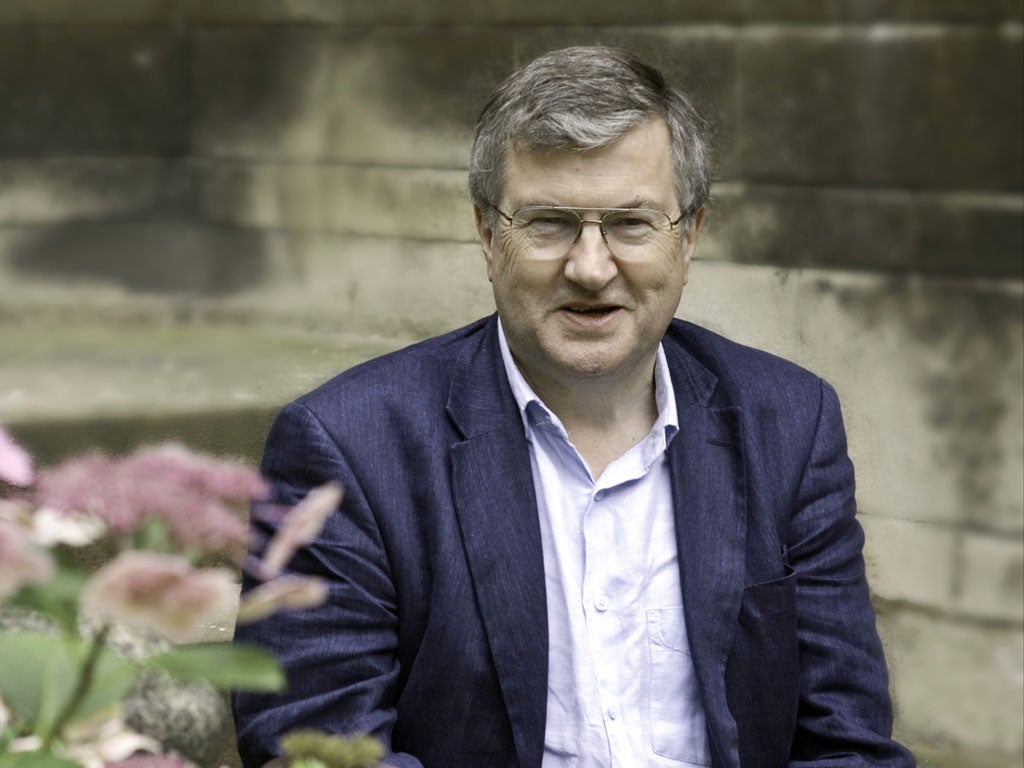Cambridge history professor hits back at Michael Gove's 'ignorant attack'
Professor Sir Richard Evans angered by Gove's criticisms of his work on World War One

Your support helps us to tell the story
From reproductive rights to climate change to Big Tech, The Independent is on the ground when the story is developing. Whether it's investigating the financials of Elon Musk's pro-Trump PAC or producing our latest documentary, 'The A Word', which shines a light on the American women fighting for reproductive rights, we know how important it is to parse out the facts from the messaging.
At such a critical moment in US history, we need reporters on the ground. Your donation allows us to keep sending journalists to speak to both sides of the story.
The Independent is trusted by Americans across the entire political spectrum. And unlike many other quality news outlets, we choose not to lock Americans out of our reporting and analysis with paywalls. We believe quality journalism should be available to everyone, paid for by those who can afford it.
Your support makes all the difference.The battlefield hostilities may have officially terminated 96 years ago but the argument over the rights and wrongs of the First World War show little sign having been settled. Today, one of Britain’s most eminent historians hit back at what he described as an “ignorant attack” by Education Secretary Michael Gove on his analysis of the conflict.
Writing in the Daily Mail yesterday Mr Gove accused Professor Sir Richard Evans of failing to acknowledge the debt owed to the soldiers that were killed in the Great War claiming he had previously dismissed attempts to honour their sacrifice as “narrow tub-thumping jingoism”.
Sir Richard, Regius Professor of History and President of Wolfson College Cambridge, suggested the criticism stemmed from his vocal opposition to the Education Secretary’s ill-fated attempts to reform the way history is taught in schools.
Professor Evans told The Independent: “I never said that at all. I said his proposals for the National Curriculum were narrow tub-thumping jingoism and there is some relationship between that.” In his article Mr Gove claimed that the centenary of the start of the war which is being marked this year should not be seen “through the fictional prism” of Oh! What a Lovely War and Black Adder which characterised the four years of fighting which cost 16m lives and resulted in 20m wounded as a “series of catastrophic mistakes perpetrated by an out-of-touch elite”. “Even to this day there are left-wing academics all too happy to feed these myths,” he wrote.
However, Professor Evans accused Mr Gove of oversimplification. “How can you possibly claim that Britain was fighting for democracy and liberal values when the main ally was Tsarist Russia? That was a despotism that put Germany in the shade and sponsored pogroms in 1903-6.”
He said that unlike Germany where male suffrage was universal – 40 per cent of those British troops fighting in the war did not have the vote until 1918. “The Kaiser was not like Hitler, he was not a dictator. He could never make his mind up and changed his mind every five minutes. The largest political party in Germany in 1914 were the Social Democrats,” he said. “Germany was a very divided country in 1914 and becomes more so as time goes on. It is not Nazi Germany,” he added.
Professor Evans agreed with Mr Gove that the debate about the war is too much shaped by popular culture. “I think the Government has got it about right. I think the Department for Culture Media and Sport has made money available for groups and institutions to mark the war in any way they see fit. That is the right thing to do. I don’t think anyone should try and impose their political view on the public. The kind of debate we are having now is the right thing to do.”
Professor Gary Sheffield of the University of Wolverhampton, who was praised by Mr Gove for his recent study of Field Marshall Sir Douglas Haig, the Commander-in-Chief of the British Expeditionary Force whose Western Front offensives cost nearly one million British lives, said it was not a question of ideology.
“Mr Gove’s politics and mine are pretty different but the view he has put forward is right. What he was wrong about however is that there is a left-right split – there isn’t,” he said.
“The publicity that has been kicking off around the centenary has reflected the Black Adder point of view although he (Mr Gove) is wrong to single it out – it is satire not documentary.”
Professor Sheffield said mainstream historians had been revising their opinions of the conflict over the past three decades overturning the “bad war” theory which had taken hold in the 1930s.
“The war was fought for defensive reasons and Europe would have been a very dark place if Germany had not been defeated. Imperial Germany wasn’t as bad as Nazi Germany but it was bad enough,” he said. “We don’t want this year to be a jingoistic carnival of celebration but rather a sober understanding that what Britain was fighting for was important. It was a war against aggression,” he added.
Join our commenting forum
Join thought-provoking conversations, follow other Independent readers and see their replies
Comments